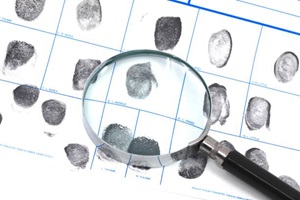Non-commissioned opportunities
Many options are available to professionals who would like to explore a career with a trusted law enforcement provider.
The King County Sheriff's Office (KCSO) employs a variety of non-commissioned positions. These are also known as professional staff classifications.
All careers offer a generous salary and benefits package, with paid vacation and sick leave.
Most positions with the Sheriff's Office are civil service positions, and the hiring process is governed by the applicable rules and laws.
Intern opportunities
|
|
The King County Sheriff's Office offers enriching internship opportunities for college students interested in exploring careers in law enforcement from a non-commissioned perspective. These unpaid internships are designed to provide hands-on experience in administrative and support functions within the department, allowing students to earn academic credit while gaining valuable insight into the inner workings of a large law enforcement agency. Interns typically work in office settings and may participate in activities such as ride-alongs, unit tours, training exercises, and job shadowing. To be eligible, applicants must be at least 18 years old and enrolled in college-level courses. The application process includes submitting a resume, a completed internship application, and an “automatic disqualifier” document. A thorough background check and polygraph examination are also required. Internships are available throughout the year, with flexible scheduling, though evening and weekend hours are generally not offered. This program is ideal for students pursuing careers in criminal justice, public administration, or related fields, and offers a unique opportunity to contribute to public service while developing professional skills |
Administrative Specialists

Administrative Specialists manage a wide variety of administrative and clerical work throughout the department. They also often interact with the public to provide general assistance. The duties of this position vary depending on which unit is being supported.
Typical duties include:
- Creating reports
- Managing databases
- Transcribing statements
- Maintaining office supplies
- Providing customer service to the community and other law enforcement agencies
Administrative Specialist II (AS II) is the level most often open to the public. These positions require:
- Good clerical skills
- Some administrative experience
- Ability to independently interpret and apply a wide range of policies and procedures in support of a work unit, under general supervision
We also have many Administrative Specialist III and IV positions, which provide more advanced technical support, and often serve in a lead or supervisory role.
Computer Resource Professionals

Computer Resource Professionals are the techies of KCSO. They manage computer and network installation, repair, and upgrades. Additionally, they're the computer problem solvers and trainers of our team.
There are several levels of positions, including:
- Desktop and Laptop Support Specialists
- Applications Developers
- Senior Network Administrators
If you love systems development and programming, technical problem solving, and network administration, this may be the unit for you!
Fingerprint Specialists

Fingerprints are often key to solving a crime. KCSO manages the Automated Fingerprint Identification System (AFIS) program for the entire region.
Careers in AFIS are very satisfying. Much of the training can be received on the job. Advancement opportunities exist from entry-level ID Technician to a Latent Examiner.
- Identification Technicians and Tenprint Examiners
Our ID Technician and Tenprint Examiners collect the fingerprints of those booked into jail and determine if each person booked has provided their correct identity.
- Latent Fingerprint Examiners
Latent Fingerprint Examiners are the team's fingerprint experts. They utilize state-of-the-art tools to locate and lift fingerprints at crime scenes and review fingerprints documented from those scenes. These roles form a vital partnership with our detectives in solving crimes.
Records Specialists

Records Specialists perform a variety of functions. They support the Sheriff’s Office, other members of the criminal justice community, and the general public.
Duties include:
- Case flow processing (receiving, data entry, e-filing, and scanning of police reports)
- Developing criminal history background information
- Responding to public disclosure requests
- Processing a variety of firearm-related licensing
- Screening applicants to purchase handguns
- Registering sex offenders
Records Specialists must be familiar with various state and local laws in order to appropriately use state, local and federal criminal records databases.
Community Service Officers

Community Service Officers (CSOs) work as the liaison between various community groups and the Sheriff's Office. They wear uniforms and drive a marked department vehicle. However, they are not armed, commissioned officers.
Duties might include:
- Conflict resolution in non-violent situations
- Victim assistance
- Working with child abuse cases
- Offering social agency referrals
CSOs also assist with law enforcement tasks that officers may not be able to complete. For example:
- Taking stolen bike reports
- Assisting with witness statements
- Directing traffic in emergency situations
- Working with community groups to prevent crime
Foreign language skills are very helpful. While a background in social work can help prepare you for this kind of work, it is not required.
This position offers busy and rewarding work. It is a great way to help your community!
Evidence Specialists

Evidence Specialists work in the department’s evidence warehouse, called the Property Management Unit.
Evidence Specialists package and transport criminal case evidence. They use careful chain of custody principles, so any evidence is secure until needed in court. They also store stolen property until the owners are notified and come to collect it.
Basic computer skills are required for this role to assist in logging and inventorying the wide array of evidence received during police investigations.
Photographers

The Digital Media and Communications office provides photographers with an interesting way to use their photographic expertise.
This role requires skills in both professional portraiture and forensic photography. They often partner with detectives to prepare photos for court or media presentations, as well as cataloging images for future reference.
Project Managers and Crime Analysts

Project Managers and Crime Analysts provide a wide range of planning and research services. They perform the following tasks:
- Professional crime analysis
- Statistical research
- Manage department-wide projects
- Maintain database content
- Serve on inter-jurisdictional committees
- Develop management presentations
If you love research, computers, and statistics, this might be the job for you. Search for Project Program Managers within our open positions to apply.
Search and Rescue

As a civilian, you can volunteer with King County Search and Rescue. In order to be a duty officer, you must be a commissioned Sheriff's Deputy with KCSO. If you are a Sheriff's Deputy, you cannot volunteer as a SAR member in the unit. Learn more about King County Search and Rescue's volunteer and employee roles.
 Translate
Translate
